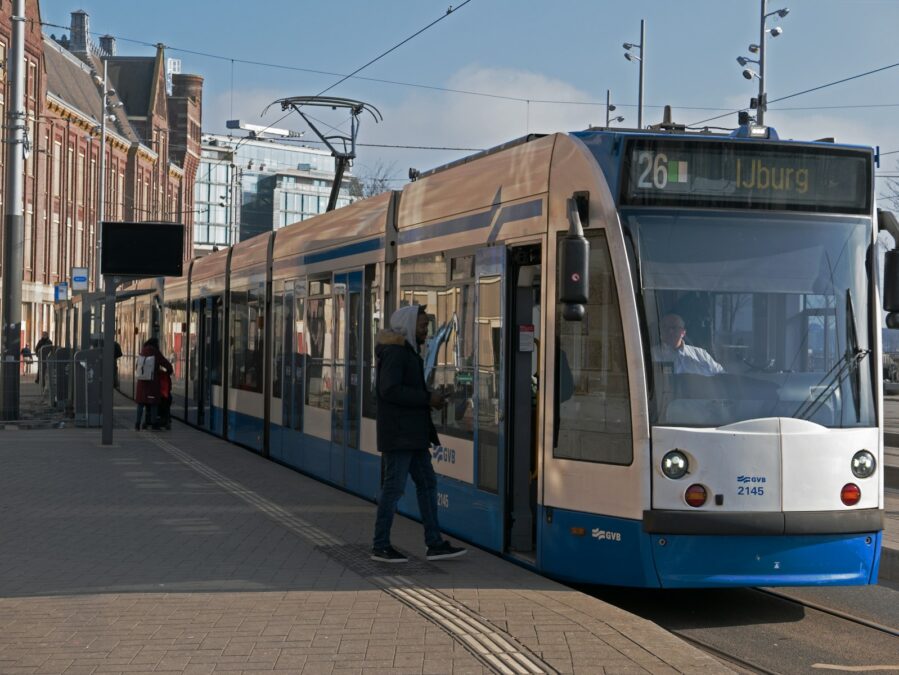The Rise of Intelligent Urban Infrastructure with 5G
5G-Powered Smart Cities: Transforming Urban Infrastructure
5G-Powered Smart Cities are set to revolutionize urban living by significantly improving the performance of smart city infrastructure. With their unprecedented speed, low latency, and massive connectivity, 5G networks will enable a new era of intelligent and efficient urban services, enhancing the quality of life for residents and creating new opportunities for businesses.
Intelligent Traffic Management with 5G
One of the most significant ways 5G will improve smart city infrastructure is through intelligent traffic management. By connecting traffic signals, cameras, and sensors to a 5G network, cities can gather real-time data on traffic flow, congestion, and incidents. This data can then be used to optimize traffic signals, adjust traffic patterns, and provide drivers with real-time information on the best routes to take. 5G-enabled V2X (Vehicle-to-Everything) communication can also facilitate the coordination of autonomous vehicles, further improving traffic flow and reducing accidents.
Enhanced Public Safety and Security
5G networks will also enhance public safety and security in smart cities. High-definition surveillance cameras connected to 5G can transmit real-time video footage to law enforcement, enabling faster response times to incidents. 5G-enabled drones can be used for surveillance, search and rescue operations, and even delivery of emergency medical supplies. Additionally, 5G can support the deployment of smart streetlights equipped with sensors that can detect gunshots, monitor air quality, and even provide public Wi-Fi.
Efficient Energy Management
5G networks will play a crucial role in optimizing energy consumption in smart cities. Smart meters connected to the 5G network can provide real-time data on energy usage, allowing utilities to identify peak demand periods and adjust supply accordingly. 5G-enabled smart grids can also integrate renewable energy sources, such as solar and wind power, more efficiently. By monitoring and controlling energy consumption in real-time, 5G can help cities reduce their carbon footprint and promote sustainable development.
5G’s Role in Building Sustainable and Resilient Cities
Data-Driven Urban Planning and Development
5G networks will enable data-driven urban planning and development by providing city planners with real-time data on various aspects of city life, such as traffic patterns, energy consumption, and environmental conditions. This data can be used to identify areas for improvement, optimize resource allocation, and make informed decisions about infrastructure investments. 5G-powered smart city platforms can also integrate data from various sources, providing a holistic view of the city and facilitating more effective planning and management.
Empowering Citizens with 5G-Enabled Services
5G networks will empower citizens by enabling a wide range of smart city services, such as real-time public transportation information, smart parking solutions, and personalized health monitoring. 5G-enabled mobile apps can provide residents with access to city services, information, and resources, making it easier for them to navigate and interact with their city. Additionally, 5G can support the development of virtual and augmented reality applications that can enhance education, tourism, and cultural experiences in smart cities.
Creating a Sustainable Future with 5G
The deployment of 5G networks in smart cities is a significant step towards building a more sustainable and resilient future. By improving the efficiency of urban infrastructure, enhancing public safety and security, and empowering citizens with innovative services, 5G is creating a blueprint for the cities of tomorrow. As 5G technology continues to evolve, we can expect to see even more groundbreaking applications that will further transform the way we live, work, and interact with our cities.
5G as a Catalyst for Economic Growth
The widespread adoption of 5G in smart cities is not only improving the quality of life for residents but also acting as a catalyst for economic growth. The development and deployment of 5G infrastructure are creating new jobs and attracting investment in the technology sector. Furthermore, 5G-enabled smart city applications are opening up new business opportunities in areas such as transportation, energy, healthcare, and education. By fostering innovation and attracting talent, 5G is positioning smart cities as hubs for economic activity and growth.
Collaboration and Innovation in the 5G Smart City Ecosystem
The successful implementation of 5G in smart cities requires collaboration and innovation among various stakeholders, including government agencies, telecommunication providers, technology companies, and citizens. By working together, these stakeholders can identify and address challenges, develop innovative solutions, and ensure that 5G technology is used to its full potential for the benefit of the entire community. The creation of a vibrant 5G smart city ecosystem is essential for driving sustainable growth, improving the quality of life, and building a more resilient future for our cities.
#5G #smartcities #urbaninfrastructure #connectivity #IoT #dataanalytics

